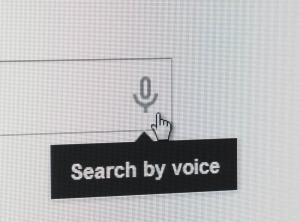Google Bert is a recently announced update that will allow the search engine giant to better interpret search queries, looking for the intent of the search instead of looking at it on a word-by-word basis. This Google algorithm update is expected to impact about 10% of all searches.
Bert stands for “Bidirectional Encoder Representations from Transformers.” It’s a neural network-based technique for natural language processing that allows Google to better understand what the user is really looking for when they type in a search query.
The new system will work with all queries, including those using voice search optimization.
 Understanding Searches Better
Understanding Searches Better
In explaining how Google Bert works, Pandu Nayak, a Google Fellow and Vice President, Search, wrote that Google already has built a way to return results for queries that the company doesn’t anticipate. That’s because of the billions of searches done on Google every day, 15% are ones the company has never seen before.
Google Bert is an extension of that kind of thinking. Nayak wrote that Google knows that language is at the heart of search. The company is always looking for better ways to understand what people really want when they type or speak words into the search box.
“It’s our job to figure out what you’re searching for and surface helpful information from the web, no matter how you spell or combine the words in your query,” Nayak wrote.
Examples of Google Bert
Google Bert makes doing that job a bit easier. The system can understand the nuances in search phrases, such as the difference between using the word “to” instead of “for.”
As an example, Nayak noted that the search phrase “2019 brazil traveler to usa need a visa” is clearly about a person in Brazil wanting to come to the U.S., and not the other way around. But in the past, Google search could not make that distinction.
The Google Bert update is going to particularly impact “long tail” searches that are more conversational. But it should allow people to better ask questions in a way that is natural for them.
 Impact on Websites
Impact on Websites
For websites, it’s important to know how a Google Bert will impact your site traffic that comes in through Google searches. If you are like most sites, that’s a big part of your traffic.
The first thing to know is that you want your site to continue producing quality content that responds to the needs of your site visitors. That’s the key to placing well in searches, no matter what changes are made to the Google algorithm.
So far, most sites are not reporting that much of an impact. The areas that this Google algorithm update will impact the most apparently are long-tail keyword searches and snippets that come up in Google searches.
For more information, it’s best to contact a professional digital marketing company that understands the details of the update and the type of content that does well on Google searches.
As for Google, Nayak said perfecting search is an ongoing project. He wrote: “No matter what you’re looking for, or what language you speak, we hope you’re able to let go of some of your keyword-ese and search in a way that feels natural for you. But you’ll still stump Google from time to time.”









